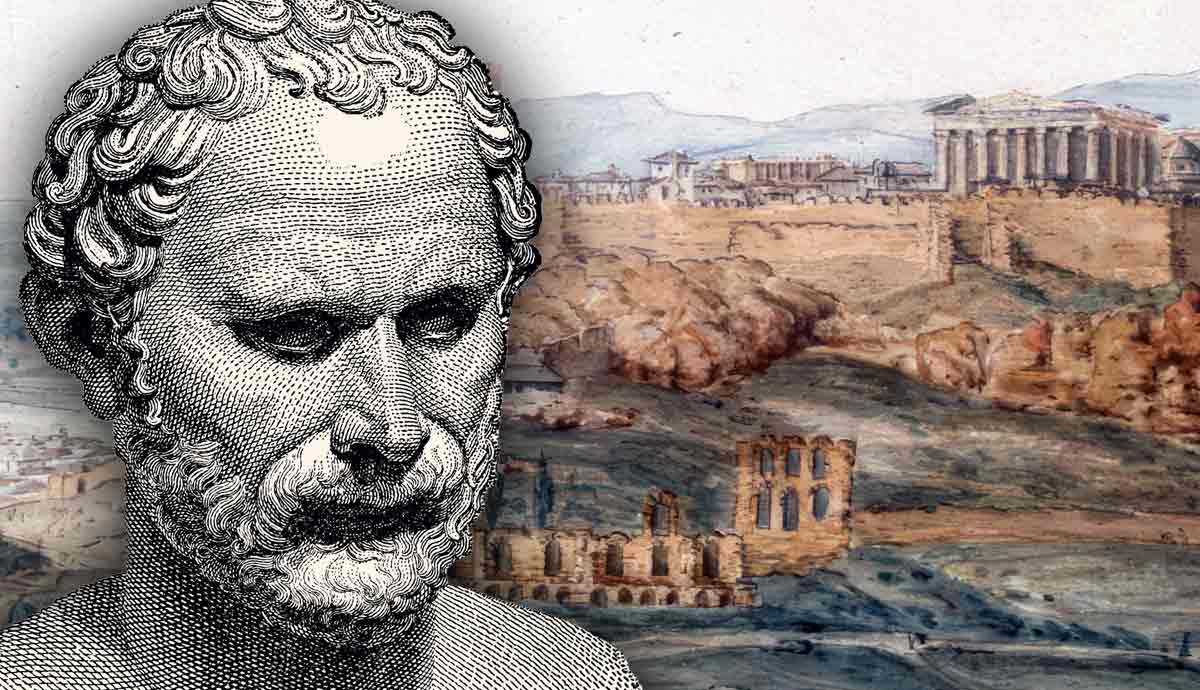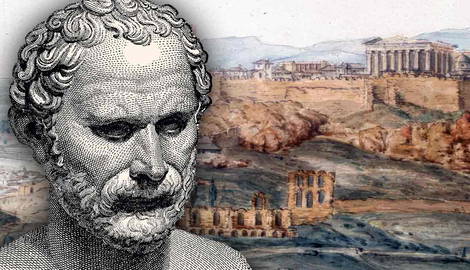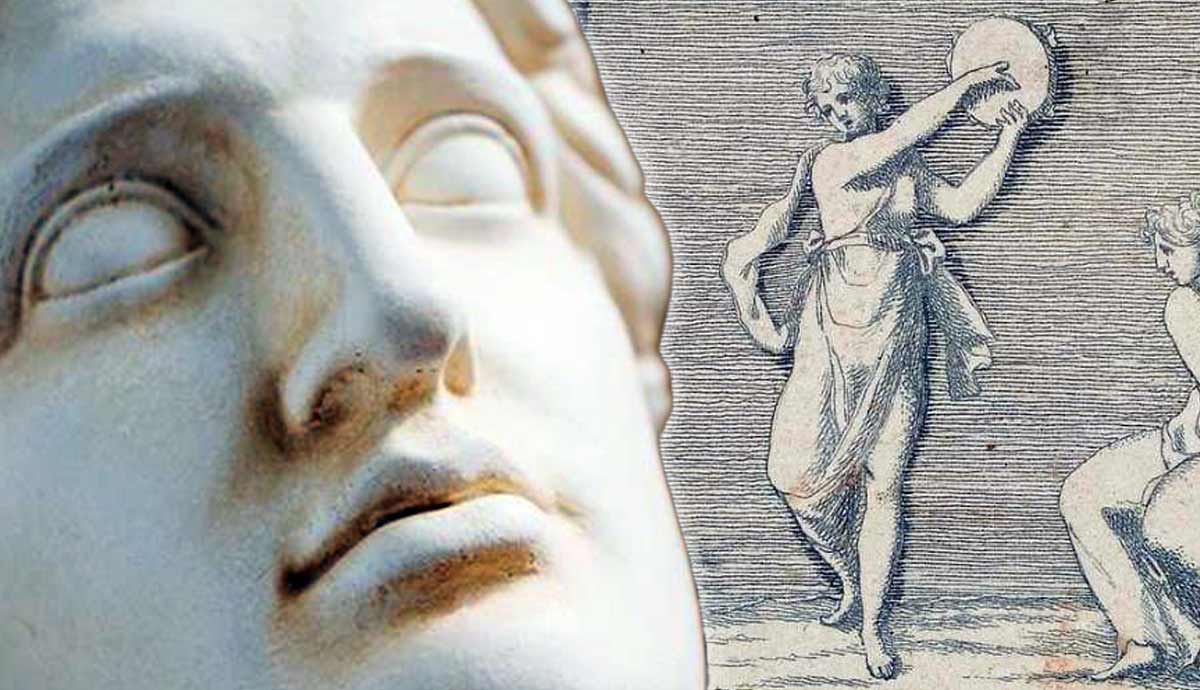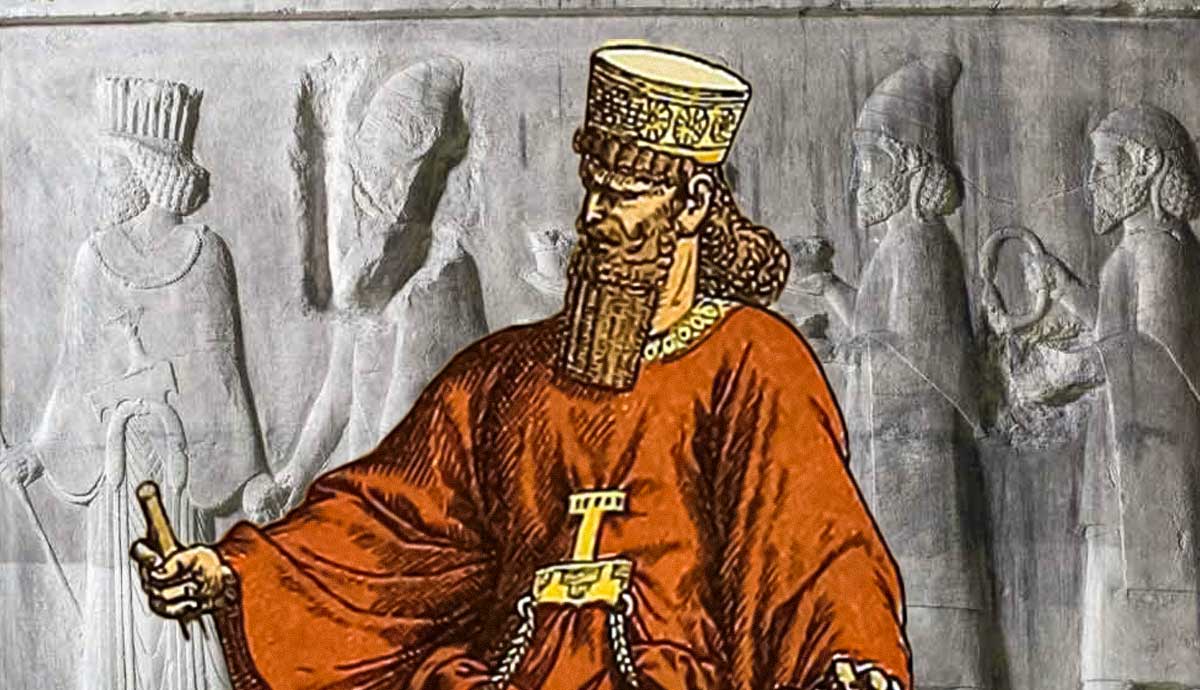
By the mid-4th century BCE, the political landscape of Greece looked markedly different from how it had a century earlier. Then, Athens had been at its height and locked in war with her great rival, Sparta. Now, the supremacy of both states has been shattered. To the north, the growing power of Macedon posed a new threat. Confronting the challenge posed by Philip II and his son, Alexander, would cement the legacy of Demosthenes as one of Athens’ most important statesmen and certainly one of the most celebrated rhetoricians in antiquity.
Origins: Demosthenes’ Early Life

As a young man, Demosthenes endured a more difficult life than many might have expected from his later reputation. Born in 384 BCE, he would be orphaned by age seven. His father, also called Demosthenes, had been successful, however, and left his son with a considerable inheritance: some 15 talents, according to Plutarch.
Unfortunately for orphaned Demosthenes, his father’s estate was badly managed by the men tasked with his guardianship. It was a desire to right these wrongs that led the young man down the route of learning rhetoric, the art of public speaking and persuasion. While undertaking actions against his guardians, Demosthenes had also engaged a certain Isaeus, a rhetorician with a specialism in inheritance cases, as a tutor.

Demosthenes delivered a total of five orations against his guardians. Three of these were Against Aphobus (363-362 BCE) and an additional two invectives Against Onetor (362-361 BCE). Although the young orator was successful, he was only able to recover a portion of the wealth owed to him.
According to the sources that describe the life of Demosthenes, the young man was exceptionally dedicated to learning his craft. Plutarch describes how Demosthenes constructed a subterranean study for himself, still preserved into the biographer’s own time, the 2nd century CE. This is where the orator would go to train his voice. In fact, such was his commitment to honing his talents that Plutarch records how Demosthenes used to shave one side of his head. The embarrassment from this preposterous haircut deterred the young man from venturing outside and being otherwise distracted from his training.
Logographer: Demosthenes & Athenian Law

Having discovered his talents while attempting to recover his inheritance, Demosthenes set upon a career in the Athenian law courts. From about 355/4 onwards, he became a professional litigant, in which capacity he had two roles. Both helped secure Demosthenes’ reputation, not only in his own time but for centuries after. First, he was a sunegoros, or an advocate. He was employed to speak on other people’s behalf in court. Evidently, the time spent in his underground study had the desired effect on his voice.
He was also a logographos, or “logographer,” which more simply means that he was a speechwriter for legal suits. Because of the way Athenian politics was conducted at this time, politicians frequently found themselves indicted by their rivals. This led the way for Demosthenes’ entry into Athenian politics in the mid-4th century BCE.

As an Athenian male, Demosthenes had previously been obliged to be involved in the politics of the polis. He had previously been a trierarch in 363 and 359 BCE, whereby he assumed the responsibility for the outfitting and maintenance of a trireme, the distinctive three-decked ships of the Classical Athenian navy. He had also been a choregos in 348 BCE, which entailed his paying for a theatrical production.
Perhaps inspired in part by his previous political responsibilities, the first political oration delivered by Demosthenes, On the Navy, in 354 BCE, called for reform in the funding of the Athenian fleet. Many of the orator’s early speeches reveal the main concerns of Demosthenes, which would dominate his later political career and the history of Athens. Chief amongst these were foreign policy, with an emphasis on the significance of the navy, and Athenian honor.
Rhetor & Rebel: Demosthenes & the Philippics

The political landscape of Hellas was undergoing considerable change during the mid-4th century BCE. While the 5th century BCE had been dominated by the two great poleis of Athens and Sparta, both had had their influence curtailed by this time. Athens had faced ruinous defeat in the Peloponnesian War, while several decades later, the limits of Spartan power were shown by the Theban victory at the Battle of Leuctra (371 BCE). By the middle of the century, a new figure was emerging in Greek politics: the Macedonians.
Located to the north of mainland Greece, the Macedonians were ruled by Philip II, an ambitious king with aspirations for glory through conquest. The Athenians had been at war with the Macedonians since 357 BCE, ever since Philip seized the cities of Amphipolis and Pydna. The looming threat of Macedonian power, manifested in the figure of Philip, was to be the inspiration for the most well-known of Demosthenes’ speeches: the Philippics.

A total of three Philippics were delivered against the Macedonian king by Demosthenes. The first Philippic, delivered in the aftermath of the Macedonian victory at the Battle of Crocus Field, was delivered in 351/350 BCE. It was a call to resistance, with Demosthenes warning his fellow Athenians of the threat to their autonomy posed by Macedonia. His speech also contained a warning to the Athenians that the growing power of Macedonia was a problem in part of their own creation: “even if something happens to him [Philip II], you will soon raise up a second Philip…”
A temporary peace with Philip was reached between 347 and 345 BCE, known as the Peace of Philocrates, following Philip’s crushing defeat of Olynthus. Demosthenes actually met the Macedonian king at this time, and it appeared that a recognition of Philip’s military might have led to a subtle change in the Athenian orator’s approach.

This is not to say that Demosthenes was abandoning his fiery invectives against Macedonia. In 344, the Athenian traveled to the Peloponnese in an attempt to win over the poleis there to his cause. He was unsuccessful and unpopular. An embassy was sent to Athens to give voice to their grievances against the orator. This fired up Demosthenes, and in 343 BCE, he delivered the Second Philippic, an excoriating attack on Philip II, which nevertheless lacked the aggression that characterised the First Philippic.
Increasingly, the political entanglement of the Athenians and the Macedonians thrust Demosthenes to the forefront of the political landscape. His preeminence was confirmed in 342 BCE with the delivery of the Third Philippic. The catalyst had been an Athenian attack on Thrace, the region which Philip had been invading at the same time. Demosthenes convinced the Athenian council not to recall Diopeithes, the general who had so angered Philip by his actions in Thrace. In the Third Philippic, he called for resolution in the face of Macedonian aggression: it would be better, he claimed, for the Athenians “to die a thousand times than pay court to Philip.”
Might of Macedon: Demosthenes, Chaeronae & Alexander the Great

Demosthenes’ continued haranguing angered the Macedonian king, and the tensions came to a decisive head in 338 BCE. The Athenians had established an alliance with a number of other Greek cities, including Achaea, Corinth, Euboae, and, most significantly, the Thebans. Philip had also courted the Thebans, but his overtures had failed after Demothenes himself was sent to the city by the Athenians.
After several minor skirmishes between the two sides, Philip was able to draw the armies together at Chaeronea. The outcome was decisive. The roughly 30,000 Macedonian soldiers devastated the combined Athenian and Theban forces. The entirety of the Thebans’ “Sacred Band,” their finest fighting men, were reputedly slaughtered at Chaeronea. They were honored by the erection of a grand lion monument where they fell.

Chaeronea confirmed Philip’s supremacy in the Greek mainland. However, he would not live long to enjoy this primacy. In 336 BCE, Philip was assassinated. He was replaced as king by his son, Alexander III, who was just 20 years old.
The recently defeated Greek cities saw the death of the Macedonian king as an ample opportunity to reassert their independence. Demosthenes took a leading part in the Athenian attempts to rid themselves of Macedonian influence. But they had misjudged the character of the young Alexander. Marching quickly, the future “Great” arrived at the gates of Thebes, which submitted to Macedonian power quickly. The Athenians, understanding that they were on their own, panicked. Alexander was begged for mercy and, perhaps surprisingly, demonstrated leniency to the city.

Both cities would attempt to rebel again in 335 BCE while Alexander campaigned in Thrace. Funded by the Persians, the rebels could not compete with Macedonian power. Thebes fared worse, however, as Alexander ordered the razing of the city. Despite the clear power of the Macedonians, Demosthenes remained resolute in his opposition. In one of his final orations, On the Crown, Demosthenes asserted once more his belief in the righteousness of resisting Macedonia, even in spite of the weakened, weary state of Athens at the time.
Death of Demosthenes

Demosthenes’ opposition to Alexander and Macedonian power continued unabated, even after the death of the young king thousands of miles away in Babylon in 323 BCE. Their final attempt to break away from the Macedonians, the Lamian War, took place from 323-322 BCE. Alexander’s successor in Greece, Antipater, quickly quashed the revolt. It was to be the last hurrah of Athenian political power.
Antipater and the Macedonians demanded that Demosthenes, a key orchestrator in this final rebellion, be handed over. Aware of the precarity of their city’s position, the Athenian council had no choice but to condemn Demosthenes and the other ringleaders to death. Demosthenes fled the city. He retreated to the island of Kalaureia (modern Poros), well known for its sanctuary of Poseidon. The agents of Antipater were relentless, however. When he realized that he had been tracked down, Demeter committed suicide by poison.
Oratorical Inspiration: The Legacy of Demosthenes

Making an assessment of Demosthenes generally comes down to whether he is considered as a politician or an orator. In terms of the former, assessments of Demosthenes can be ambivalent, both in antiquity and in modern analyses. For Plutarch, Demosthenes’ sustained commitment to his principles, mainly of Athenian independence, was to be lauded. The biographer commends Demosthenes’ resolution right up until his final breath: “he chose rather to forsake his life than his purpose.” Others, however, are less positive. They view his resistance to Macedonian hegemony, or at least the obvious military supremacy of their armies, as short-sighted or misguided. This is the case with Polybius, who records that it was only the mercy of Philip after Chaeronea that stopped the Athenians suffering catastrophic consequences despite the “policy of Demosthenes.”

As an orator, however, Demosthenes was, and remains, almost universally lauded. He was widely considered to mark the apogee of Attic oratory, and his skills, in terms of rhetoric and oratory, were commended throughout antiquity and beyond. For example, Juvenal, the Latin poet, described Demosthenes as an “overflowing fountain of genius.” He was also a continued source of inspiration for perhaps the most famous Roman orator, Cicero. Indeed, Cicero’s own political invectives against Mark Antony were called the Philippics in imitation of Demosthenes’ own. Plutarch noted the similarity between the orators and politicians in his parallel biographies of the pair, suggesting that it was so striking that it could have been the result of divine power!










